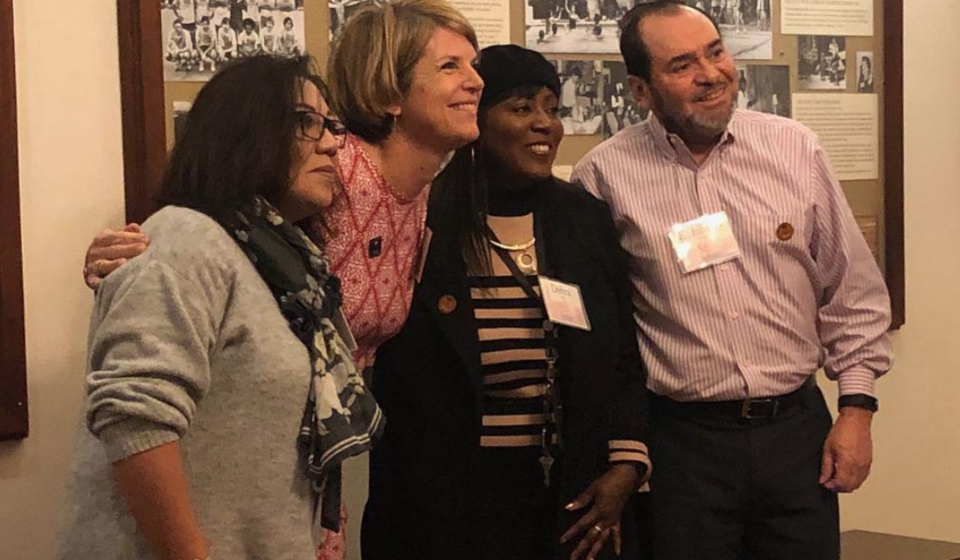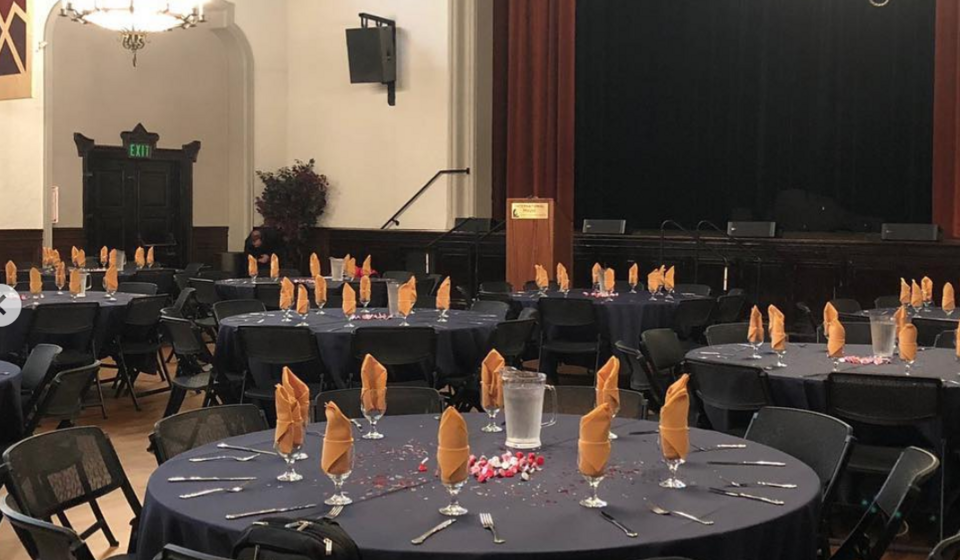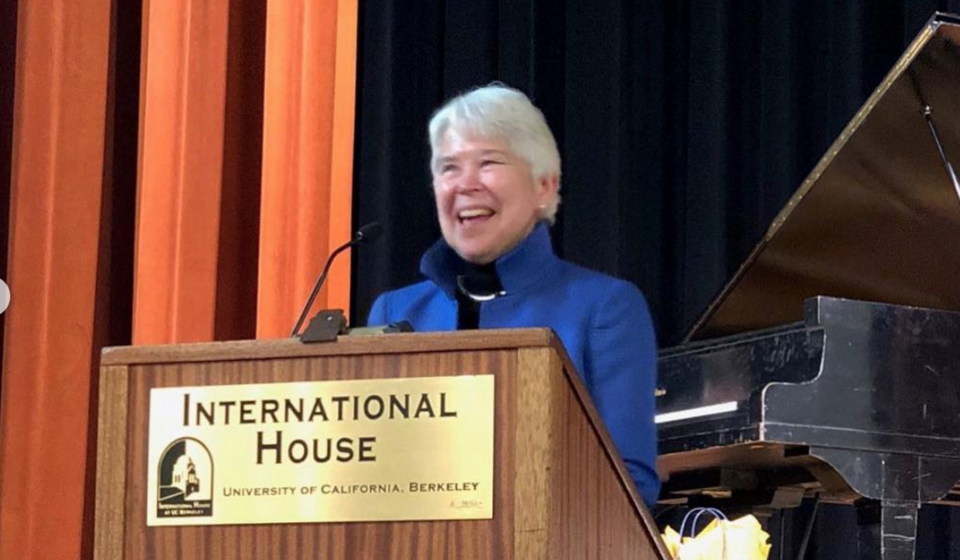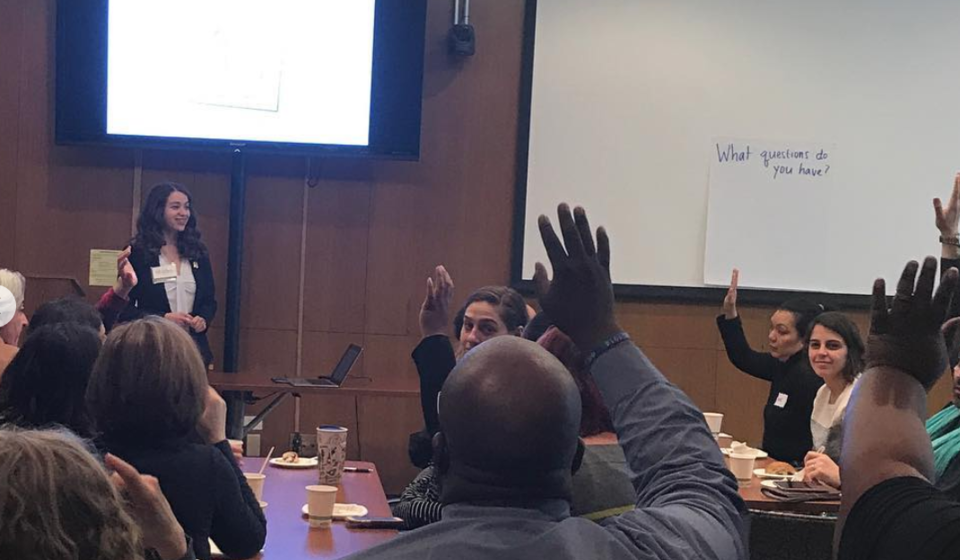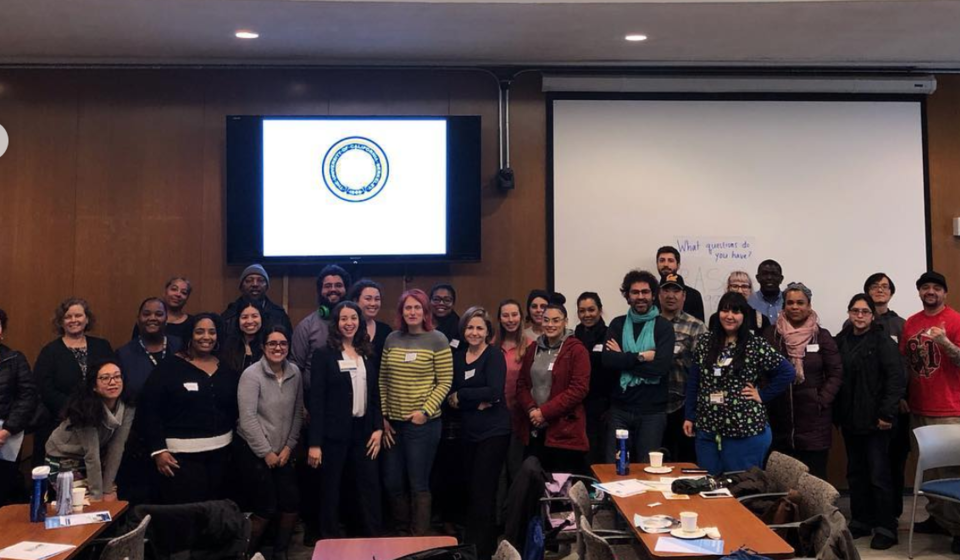What are some of your previous experiences prior to working at UC Berkeley?
Before I came to work at UC Berkeley, I had been working at the San Francisco Museum of Modern Art for about 8 years. I started at SFMOMA processing membership renewals in the Development department. This is where I cut my teeth and learned to love and trust databases.
Over the next 8 years, I held many different positions ranging from Assistant to Assistant Director. In my final position at the museum, I was able to play a big role in the implementation of SFMOMA's new Customer Relationship Management (CRM) system. For the next 4 years, I worked with all the departments that would be using the new CRM to gather requirements and implement the functionality required for their needs. I also developed standard operating procedures and documentation for all procedures related to the new CRM as well as a training program for all new staff that would be using the CRM. I loved the work I was doing but I was progressively overworking myself to prove my value because, with each promotion, I felt like someone was going to realize they had made a mistake in hiring me. This was my worst experience with impostor syndrome.
How did the culmination of your experiences add up to you achieving your current position?
In Spring 2018 I left SFMOMA for the Registration and Enrollment Specialist position in the Office of the Registrar at UC Berkeley. After 8 years at the museum, I wanted to work for an organization aligned with my pursuit of lifelong learning and focus more on doing the work I love instead of delegating it. When I first started working at Cal there was so much to learn but as I quickly got up to speed and became a resource to my team and cross-departmental colleagues. I started to crave more agency and challenges so I took on more projects, joined my first Community of Practice, and attended tons of UC Berkeley staff Technology and Systems Training classes. It was hard to recognize at the time that I was ready for a different role because I loved the work and loved being the go-to gal but it soon became clear that I needed a change. I joined the Cal Data Visualization Network, aspirationally, and instantly felt like I had found my people! I learned so much and with the support of colleagues I met through this group, I ultimately realized I needed to apply my skills to a different role.
My comfort with databases and understanding of their basic structure, regardless of the product, allows me to quickly pick up on how each system works. Also, I pride myself on being a "robot optimist" so I am confident that there is always a way to solve a problem with the database tools. I gained these skills and perspectives from my many roles at SFMOMA as well as my role as the Registration and Enrollment Specialist where I often had to go down the rabbit hole to investigate seemingly mysterious issues that often had a reasonable explanation. These experiences gave me the drive, confidence, and expertise to apply for my current role as the Business Systems Analyst in the Central Evaluation Unit.
How could you help someone differentiate between their passions or something they are good at, in order to help steer their next career move?
In the last 6 years I was working at SFMOMA, I was promoted multiple times. Each role with more responsibility and an expectation to delegate some of the work I was previously responsible for. I assumed I was on the right track because all of the messaging I had observed told me that I needed to be a manager of a team if I wanted to progress in my career or else I would be stagnant. So, I was grateful for each promotion regardless of feeling more and more unhappy. When my unhappiness finally came to a head, I had to figure out what I really wanted to do. So I deconstructed all of the roles I had up to that point and what I liked about them and what I didn't like about them. What I discovered is that I was not interested in managing people but I was interested in supporting my colleagues. I love systems and technology and acting as a bridge to explain how they work for my colleagues who are less comfortable with technology. I enjoy demystifying technology so it can be accessible to all users.
My advice would be to trust yourself and that you know what is best for you. The messaging we receive about what we are "supposed" to do is not a "one size fits all model" so it is possible it does not apply to you. I would also advise you to identify what aspects you love about all of the roles you have had, trust the answers you come up with, and keep reminding yourself that they are valid.
What advice might you have for someone who is struggling with impostor syndrome?
When I first started my new role as a Business Systems Analyst in the Central Evaluation Unit, self-doubt and impostor syndrome entered my psyche once more. It was hard at first to leave a role where I was a resource to others and start a role where I had to ask 100 questions in order to do my job. But I took one day at a time, resolved one issue at a time, and accepted support from my colleagues. I am happy to say, a year later, that I feel confident in my role, able to help my team and my cross-departmental colleagues, and get to apply all my skills and creative thinking every day.
My advice to others would be to remember the skills and experiences that brought you to the point where you are now. Trust your colleagues when they express their appreciation and don't be afraid to ask questions and learn from your mistakes. I am still learning to appreciate mistakes and failure instead of beating myself up but when I look back, all the most valuable lessons I have learned were because of some mistake or "failure" (interpersonal and technology-based).
Know someone (including yourself!) who has changed jobs or made a new career path at UC Berkeley? E-mail us at wisdomcafe@berkeley.edu(link sends e-mail) to be featured.







